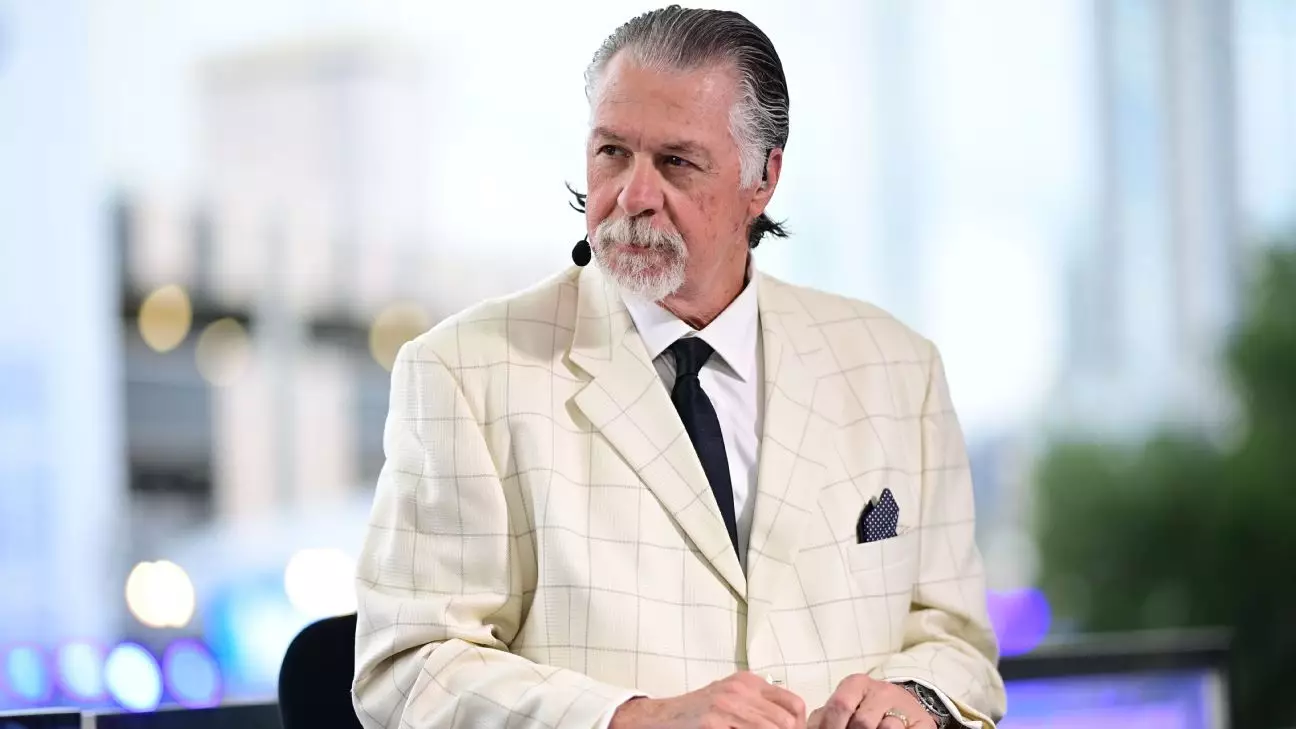The hockey world was met with a sad announcement on Tuesday as former NHL coach and player Barry Melrose, who has been an Emmy Award-winning hockey analyst for ESPN since 1996, revealed that he has been diagnosed with Parkinson’s disease and will be retiring. This news marks the end of an era for both Melrose and ESPN, as he has been an integral part of the network’s hockey coverage for almost three decades. With a career spanning over 50 years, Melrose has left an indelible mark on the sport of hockey and will be sorely missed.
A Departure for Health and Family
In a statement, Melrose expressed his gratitude for his remarkable career and emphasized that it is now time to prioritize his health and spend time with his supportive wife, Cindy. He fondly reminisced about the extraordinary experiences he had playing, coaching, and analyzing the sport he loves. Melrose’s retirement signifies his transition from the ice to the stands, where he will continue to cheer for his beloved game and the fans who have supported him throughout his journey.
A Career Full of Achievements
Before joining ESPN in 1996, Melrose garnered recognition as the coach of the Wayne Gretzky-led Los Angeles Kings. During his three seasons with the Kings, he guided the team to the Stanley Cup Final, showcasing his prowess as a head coach. Although he took a break from the network in 2008 to return to coaching with the Tampa Bay Lightning, Melrose’s true legacy lies in his role as a studio analyst on ESPN. His quick wit, flamboyant suits, and iconic mullet endeared him to hockey enthusiasts across the globe.
A Tribute from the Hockey Community
In a video tribute for ESPN, Wayne Gretzky himself emphasized that Melrose’s impact on the sport extends far beyond any individual team. Melrose has been hailed as the conductor of the finely tuned orchestra that is the hockey community, and his absence will undoubtedly be felt. Countless hockey legends, including Gretzky, have expressed their support for Melrose and their gratitude for his contributions to the game. NHL commissioner Gary Bettman praised Melrose’s gigantic personality and recognized his significant role in making hockey bigger, more exciting, and more entertaining.
Throughout his illustrious career, Melrose has been a constant fixture on ESPN’s hockey coverage. He worked alongside fellow analysts Steve Levy and John Buccigross, delivering insightful commentary and analysis for All-Star Games, Stanley Cup playoffs, and the Stanley Cup Final. Buccigross, in a heartfelt post, expressed his admiration for Melrose’s wit, professionalism, and timeless sense of style. With Melrose’s departure, ESPN’s hockey programming will undoubtedly undergo a significant change, as his unique and infectious love for the game cannot be easily replaced.
Melrose’s involvement in the hockey world extends far beyond his tenure at ESPN. As a coach, he achieved remarkable success, leading the Medicine Hat Tigers to the WHL’s Memorial Cup title in 1987 and guiding the Adirondack Red Wings to a Calder Cup championship in 1991. Prior to his coaching career, Melrose played as a defenseman in the NHL for the Winnipeg Jets, Toronto Maple Leafs, and Detroit Red Wings, amassing 335 games over 11 seasons. His time in the WHA with the Cincinnati Stingers further exemplifies his dedication to the sport.
As Barry Melrose embarks on the next chapter of his life, the hockey community looks back on his career with gratitude and admiration. His retirement marks the conclusion of a legendary era in hockey broadcasting and coaching. Melrose’s contributions to ESPN, the teams he coached, and the fans he entertained have solidified his place as one of the most renowned figures in hockey. While he faces a new challenge with his Parkinson’s diagnosis, Melrose’s resilience and determination serve as an inspiration to all. The hockey community stands united in offering support and well wishes to Barry Melrose and his family, knowing that he will face this fight with the same passion and dedication that he has displayed throughout his extraordinary career.


Leave a Reply